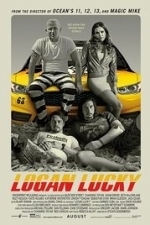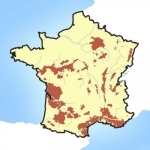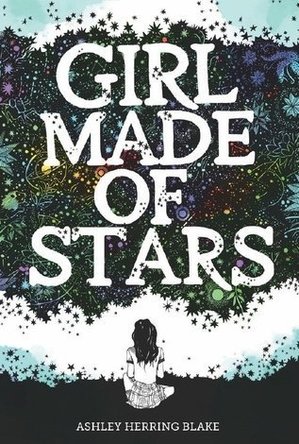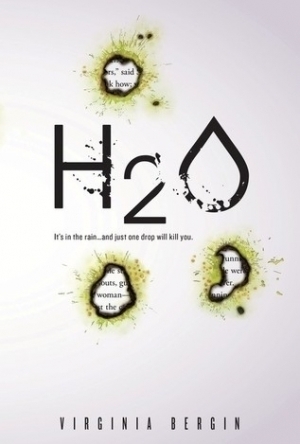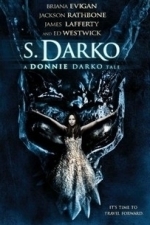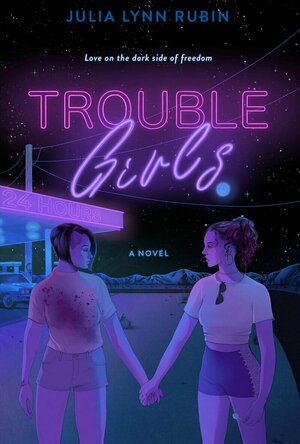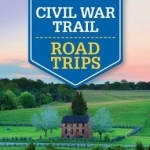
Lonely Planet Civil War Trail Road Trips
Lonely Planet, Amy C. Balfour, Michael Grosberg and Adam Karlin
Book
Lonely Planet: The world's leading travel guide publisher Whether exploring your own backyard or...
Gareth von Kallenbach (980 KP) rated Logan Lucky (2017) in Movies
Jul 11, 2019
This Steven Soderbergh (Ocean’s 11, Ocean’s 12, Ocean’s 13) directed film is a fun and fast paced heist film. It definitely fits into the Ocean’s film model, with a large cast, twists that keep the audience guessing and well thought out ending. This films stands apart from those by being more hillbilly than the sleek well put together Ocean’s crew. The film dialog is well done and written expertly by Rebecca Blunt, this is the first screen writing credit for Rebecca. There are plenty of cameos by West Virginia Natives, NASCAR drivers and commentators, and others. I had heard beforehand that there were several cameos and made for a fun exercise in spotting the NASCAR drivers in various roles. The ensemble cast is stellar led by Tatum, Driver and Craig. The cast includes fun performances by a barely recognizable Seth MacFarlane along with Dwight Yoakam, Katie Holmes, and Hilary Swank. There were times thought that the various accents that the cast were attempting to use felt forced and/or missing from particular scenes. The pace of the film is good but does get a little slow during the heist set up and the two hour run time was a tad too long for me.
Overall this is a fun film that fits the heist movie genre perfectly. One news report in the film characterized the robbery as Ocean’s 7/11 and that pretty well sums up the film. The characters are original and if you are a fan of these types of movies you will not be disappointed.
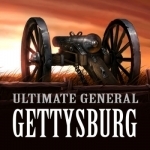
Ultimate General™: Gettysburg
Games
App
A Tactical Wargame that allows you to command thousands of soldiers as a Union or Confederate...
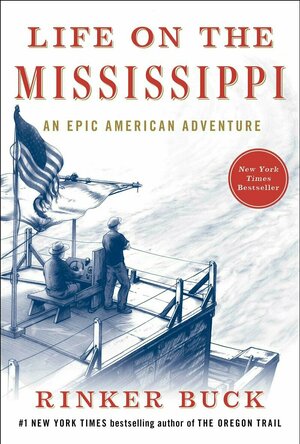
Life on the Mississippi
Book
The eagerly awaited return of master American storyteller Rinker Buck, Life on the Mississippi is an...
Kristy H (1252 KP) rated Girl Made of Stars in Books
Jun 5, 2018
This novel. Oh my goodness. It will break your heart and yet leave you speechless with wonder. It's so beautiful. It started off with a quote from Virginia Woolf (The Waves), so I knew it was going to be good. And it certainly was.
The book is so achingly gorgeous and real, with its realistic look at high school. It portrays how both amazing and awful kids can be at this age. Mara is such a lovely character. The Owen/Hannah situation leaves her conflicted and forces her to face something terrible in her own past. By placing Mara in such a difficult situation, Herring Blake also does a good job of showing how hard it is being the female in this situation and how so few people believe the girl. It's such a timely commentary (albeit a sad one). It may not always be easy to read, as we see how hard things are for Hannah (and Mara), but it's so well-done.
I mean, really, this book is just heartbreaking at times. And yet I was riveted. These kids, with their big problems, so many of them living other people's dreams. It was so poignant, so true to so many of my own experiences. And the relationships here--well, wow. I mean, for one thing, we get a truly bisexual character in Mara, which is so refreshing. And then Charlie is genderqueer/nonbinary. It was so wonderful to have these characters in this novel, as a positive representation for teens--living real lives, with real problems, but in no way serving as the villain or maligned character. I was incredibly impressed. I wish this novel was on the shelf of every high school (well, on the shelves everywhere, honestly).
The girls in this book are in a group called Empower, which stands up for females--how they are portrayed, the double standards they face, and more. They are so strong, despite all the hurdles they face on a daily basis. Honestly, despite so much sadness in this novel, there is so much hope. So much strength. I adored Mara. She is wonderful -- such a strong, amazing, and lovely character. I found myself rooting for her as if she was my own kid.
I loved this one. I don't even remember how or why I stumbled across it and requested it, but I'm so glad I did. This is a beautiful, powerful book about the strength of human existence. The girls in this novel will make you cry, make you laugh, and make you both despair for and have faith in humanity. I will be tracking down the rest of Herring Blake's books for sure.
I received a copy of this novel from the publisher and Netgalley in return for an unbiased review.
Hazel (1853 KP) rated H2O (The Rain, #1) in Books
Dec 7, 2018
The world has already had to deal with worldwide pandemics spread by animals and birds such as swine flu and bird flu. What if there was a fatal disease in the rain? How would humanity cope? This is what Virginia Bergin explores in her debut novel aptly titled <i>The Rain</i>. If anyone were to come into contact with the rain, even a single drop, or contaminated water they would have an immediate reaction and be dead in less than three hours. Fifteen-year-old Ruby Morris, who has so far managed to survive this disaster, narrates the story starting from the first day that the disease arrived in Britain.
Ruby describes the losses of her friends and immediate family, the surprising improvement with her relationship with her stepfather Simon. She explains at length the things she had to face in order to survive, firstly with Simon and then with a particularly nerdy boy from school.
Despite hints from the title (and the blurb, of course) it is a long time before Ruby reveals what has actually happened. She talks to the reader as if they are experiencing the same thing and therefore know what she is referring to. Whilst this was probably an attempt to create suspense and to encourage the reader to keep reading it was slightly galling. What was really wanted was for Ruby to get to the point so that she and her audience would be on the same wavelength.
Whilst some readers may be able to relate to the main character: a teenage girl who loves to spend time with her friends and going to parties but has strict parents (and/or step-parents) who never let her do any of those things, which means she cannot easily have the thing she most desires – a boyfriend; she is actually a rather annoying, snobbish brat. She’s the kind of person that could be described as a “clueless bully”, a selfish girl who mostly, if not only, cares about appearances. Even in the face of the potential end of the world, or at least mankind, she is constantly worrying about the way she looks and what she wears, and is thrilled that she can break into expensive shops and take whatever make-up or clothing she wishes. There was probably a point in this character flaw – the exploration of how not only a young person copes on there own in dire situations, but someone of this particular mindset – however it was exasperating to read. She did change a little over the course of the story but not enough for her to become a likable character.
<i>The Rain</i> is more appropriate for young adult readers due to the nature of the main character, however it does deal with rather disturbing themes such as death and violence. Having said that there is nothing to stop older readers from enjoying the novel. It is an interesting concept, which, although highly unlikely to occur, will make people question how they would behave in the given situation. Would they be one of the first to die, or would they be in supermarkets fighting for the quickly disappearing food and drink? It is a thought-provoking idea!
Chris Sawin (602 KP) rated S. Darko: A Donnie Darko Tale (2009) in Movies
Jun 22, 2019
s. Darko wasn't nearly as bad as I thought it would be, but that still isn't saying much. I love Donnie Darko as it seems to be a film that gets better with each viewing. When news that a sequel to the film was being made, the question that plagued me and every other person who was a fan of the first film was, "Why?" Did the original really leave much room for a sequel? Not in my eyes. The sequel does little to add to the story established in the first film. It pretty much treads the same ground. The world is going to end again. An element that is different in the film is that more than one person is having the visions this time around. While it makes sense that Sam is having these visions, it doesn't really add up why these other people are having them as well. The movie does a lot of back tracking. A lot of things are explained only to rewind and have it play out differently, which makes full use of the time travel element of the film but kind of leaves the viewer wondering if the film was nothing more than a waste of time once the ending rolls around. The film just seems to recycle most of the ingredients of the first film (time travel, Frank the Bunny...even though he's not Frank this time around, religion playing a roll in the film, black holes, etc) and is unable to establish itself as a decent sequel, let alone its own film.
The scene in Donnie Darko that has "Head Over Heels" by Tears For Fears playing in the background while we see Donnie arrive at school and the "Mad World" scene are really the first scenes that come to mind when I think of the original film. The soundtrack played a pivotal role in the film. In s. Darko, there isn't really a scene like that and the soundtrack is forgettable, which really only hurt the film in the long run.
s. Darko walks a thin line between paying homage to the original film and complete bastardization. Its plot tries to string the viewer along this intelligent and thought provoking story, but executes doing so in clumsy fashion. It resembles a circus seal waiting for its reward after playing that ensemble with its nose on the horns currently residing in front of it. It'll really only be accessible to people who were fans of the first film, which is ironic since the film will probably just wind up irritating those fans. If you can ignore the first film entirely and have no expectations for this, then you may find yourself with a direct to video release that is...pretty much just that.
Kristy H (1252 KP) rated Trouble Girls in Books
Jun 3, 2021
The premise of this book sounded amazing -- a queer "Thelma & Louise." Unfortunately, it all fell apart for me. Rather than being a #MeToo rallying cry, this was a depressing and stressful read, featuring two teens who make a bunch of stupid and ill-fated decisions.
I definitely understand the overall idea for TROUBLE GIRLS and even why Trixie and Lux run, afraid that no one will believe their story. But the choices they make along the way--spending their money on junk, not trusting each other, stealing and lying... and everything else. It's maddening. They do not act like two smart girls on the run, but two idiots who do not believe in one another. Trixie's infatuation with Lux clouds everything, and Lux comes across as this adored princess with no real personality of her own.
We're (eventually) told a bit of Trixie's backstory, including why we have to read the word "hog" in what feels like every other darn sentence, but the character development here is severely lacking. Trixie has a sick mom and a dark secret. Lux... likes makeup and her camera? I think this story would have would worked so much more if we knew how and why these two teens ticked. Why, exactly, was Trixie so in love with Lux? How exactly did Lux feel back? There's a weird switch that turns at some point in the book, and it made no sense to me. If you're going to give me a queer story, give me queer characters who truly feel for one another and whose love is based in reality.
Trixie and Lux's story is supposed to have a #MeToo angle to it, and it does, in some ways, but this was not a #MeToo anthem to me. It's two girls running away, trying to figure out maps on the back roads, and making poor decisions as they flee what they've done. While, again, I understand why they run, the story I wanted to read was Trixie and Lux returning to Blue Bottle and fighting along side the Intersectional Feminist Union and the other women they supposedly "rally" with a few misplaced social media posts. It was these women and Judy, Trixie's co-worker back home, whose life I wanted to know about--I would have enjoyed that book much more!
Overall, this book can tug at your heart strings, but also frustrate you to no end. There was much to its overall premise, but most of it did not work for me. 2.5 stars (Trigger warning: sexual assault, rape)
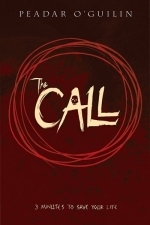
The Call
Book
THREE MINUTES You wake up alone in a horrible land. A horn sounds. The Call has begun. TWO...
